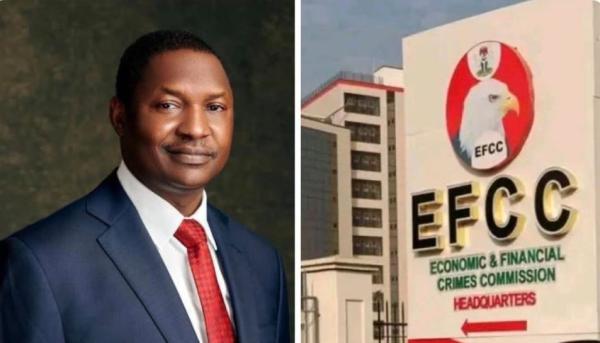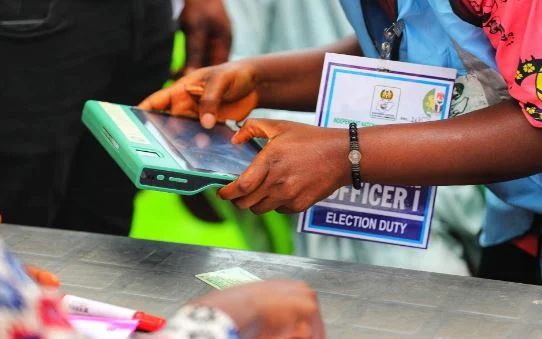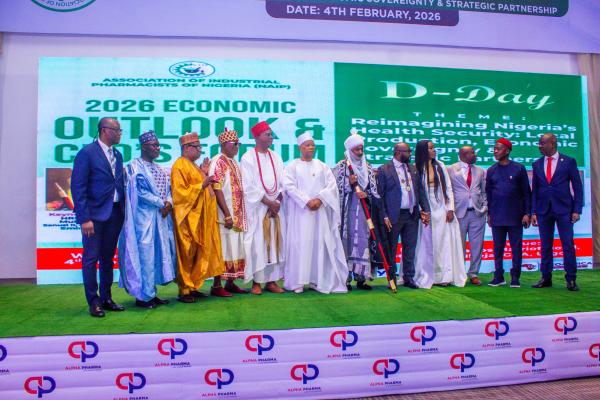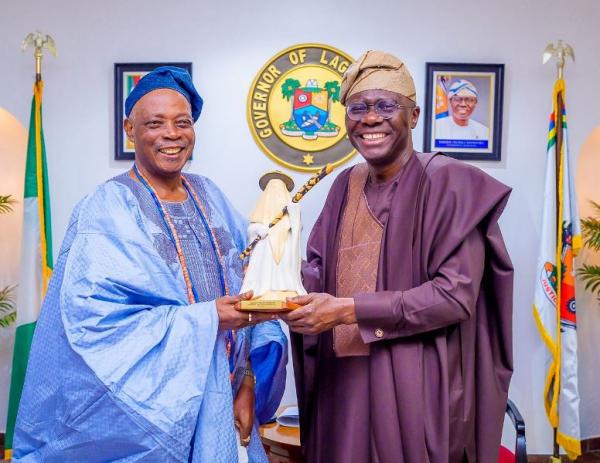
The Conference of Speakers on Friday presented its resolutions on the 57 sections being amended in the 1999 Constitution to the National Assembly, approving the split of the office of the Attorney General from the Minister of Justice.
Chairman of the conference, Samuel Ikon, handed over the document to the President of the Senate, David Mark.
Ikon said that the conference had done its part of the work as all the items listed for amendment were scrutinised through votes in the 36 Houses of Assembly in the country.
“The president of the senate, a few weeks back, I assured you that we would do justice and act in line with the wish of our people as regards to the Constitution for Alteration Bill 2015.
“On behalf of the states’ Houses of Assembly, I present to you the resolutions of the assemblies, which have shown our resolve to strengthen and deepen our democracy.
“We urge that this process should be a continuous one as sections not agreed on today can find relevance in future,” he said.
Ikon said, “Let me announce that we have exceeded the requirement for financial autonomy for the state legislatures.
“We have also exceeded the required two-thirds for the strengthening of other institutions sought for, such as splitting of the office of the Attorney-General and that of the Minister of Justice.
“We are hopeful that the outcome would give Nigerians confidence that our future is sure.”
Receiving the document, Mark commended the conference for the commitment its members showed in the discharge of the job.
Mark recalled that “when, two months ago, we handed the resolutions from the Senate and House of Representatives to you, we told you in clear terms that we had no agenda.
“We went round this country asking Nigerians to express their views on areas in the constitution that they want an amendment.
“Many Nigerians were of the opinion that we were not going to make any amendment at all in the seventh Senate and in the seventh democratic dispensation.
“But having returned the document, our work has been made easy, regardless of the ones that have not met constitutional requirement for amendment.”
According to him, “the important thing is that you have been able to do your work promptly as possible.
He, however, pointed out that the matter was not just for making amendment, but that Nigerians must be prepared to adhere to the provisions of the constitution irrespective of their positions in the country.
“We, the operators, must be first prepared to abide by the laws. It is with this development that we can give our constitution a meaning,” Mark said.
Also speaking, Speaker of the House Representatives, Aminu Tambuwal, said that the process for further altering the constitution was built on the experience of the National Assembly.
Tambuwal, who was represented by the Deputy Speaker, Emeka Ihedioha, said the House’s ad hoc committee on constitution review, was set up to fulfil one of the cardinal points in the legislative agenda.
According to him, “whatever the outcome of the returns from the states, we will accept it as the inevitable consequences of running a federation where the input of the states is a critical requirement. Indeed, the process of amending or altering the constitution is a continuous one. It does not end with this exercise.”
Tambuwal said he felt a personal sense of satisfaction at the way the collective views and aspirations of Nigerians from all walks of life had been reflected largely in the amendment process, especially at the level of the National Assembly.
Tambuwal promised that the National Assembly “shall carry out this final exercise with dispatch, particularly given the limited time in the life of the current assembly,” adding that “We hope that the resolution reached on the bill by the Houses of Assembly of the states would meet the expectations of Nigerians on the key issues that were affected by the exercise.”
He said: “I feel highly delighted at the event of today which marks another epoch in the annals of constitution alteration by the National Assembly. At a personal level, I have a sense of fulfilment, having guided the ad hoc committee of the House of Representatives in arriving at the Constitution Alteration Bill which was adopted with positive votes of the two chambers of the National Assembly.
“When we started the journey to further alter the provisions of the Constitution of the Federal Republic of Nigeria, 1999, we built on the experience of the efforts of the National Assembly.
“For us in the House of Representatives, the House ad hoc committee on constitution review was set up to fulfill one of the cardinal points in the legislative agenda adopted by the seventh House of Representatives following its inauguration in June 2011.
“We had made a commitment to the people to further alter the provisions of the 1999 Constitution in a more holistic manner than the previous efforts which touched only a few provisions. If we recall the origin of the constitution, we will acknowledge that it lacked a more direct participation of Nigerians in its making. We made efforts this time to involve all Nigerians.
“The National Assembly took the approach of incremental alterations of the provisions of the constitution in such a manner that would eventually bring about a wholesale alteration/review of the constitution without unduly upsetting the governance structure of the country. This we did with the proposal for the amendment or alteration of 57 sections and 7 schedules of the constitution.
“Following the adoption of the bill, the National Assembly, on 28 October 2014, transmitted the bill to the conference of speakers of state legislature in accordance with Section 9 of the constitution. It is heartening that the Houses of Assembly of the states concluded the work on the Bill in less than two months and are transmitting their resolution to the National Assembly today, indicating the views of their states on the items for amendment proposed by the National Assembly.
“The National Assembly will further collate the votes on each of the sections of the bill and determine which of them attained the constitutionally required two-thirds vote for passage, which in practice means that 24 out of the 36 state Houses of Assembly shall have voted ‘yes’ on each section for it to be adjudged as having passed.”






















